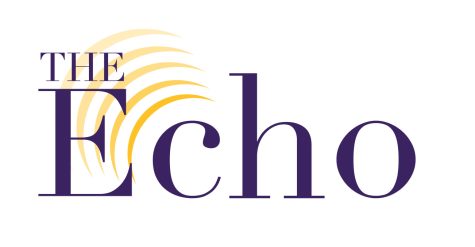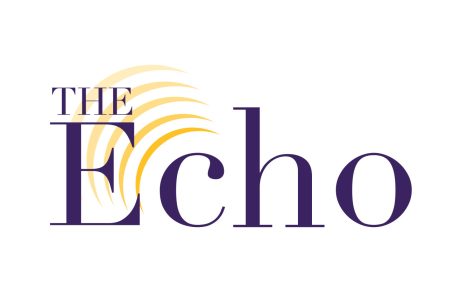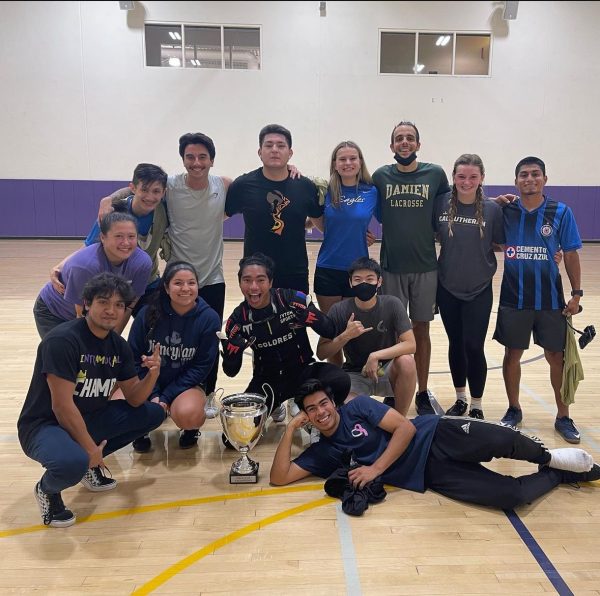Op-Ed: Title IX at Cal Lutheran
May 3, 2021
This is an Op-Ed submission. Opinions expressed are solely of the writer(s) and do not express the views or opinions of The Echo. All California Lutheran University students and employees are invited to submit Op-Eds to [email protected].
California Lutheran University does not tolerate harassment in its programs or activities. Engaging in any harassing conduct prohibited under Cal Lutheran’s policies, including the university’s Title IX Policy, violates the values of our community and stands in stark opposition to the university’s mission to educate leaders who are strong in character, identity, and vocation and committed to service and justice. Cal Lutheran has always taken very seriously any allegations of harassment by any member of the community and will continue to do so.
Over the decades that the law known as Title IX has been in effect, the nature of the law itself has evolved to cover discrimination including athletic parity, sexual harassment and sexual assault. The processes and procedures required by Title IX and California law have similarly gone through many changes over the past decade. Due to the many questions and conversations regarding Title IX taking place on campus, we feel it is important to understand the basics of the university’s complaint handling process. The university’s Title IX Policy is a critical component of Cal Lutheran’s overall efforts to prevent harassment based on sex or gender, specifically. However, the Title IX Policy is not the only policy used by the university to combat harassment and discrimination, so we wanted to explain how the university approaches concerns of sexual harassment, including sexual assault, under the current laws.
How Title IX reporting works
Allegations of misconduct can be reported to many different members of the campus community. Any Cal Lutheran community member or campus visitor who experiences or becomes aware of an incident of discrimination or harassment, including harassment prohibited by Title IX, should report the incident immediately to the Title IX Coordinator, or to any responsible employee, who is then required to disclose the report (there is an exception to this mandate for those who are considered confidential resources, such as counselors at Counseling and Psychological Services and campus pastors).
Once notification is received, the university must take action to address the alleged prohibited conduct. It is at this point that the university assesses the procedures to be applied, depending on the law. Under the August 2020 Title IX regulations, a Formal Complaint must be made for a Title IX investigation to begin under that policy. This means that the Title IX Office cannot always investigate social media posts or campus rumors via the Title IX process. However, other university policies prohibiting discrimination and harassment may be activated.
After receipt of formal notification, the Title IX Office will reach out to the person making the report and/or the complainant. A complainant is an individual who is alleged to be the victim of conduct that could constitute sexual harassment under the university Title IX Policy. Sometimes the person making the report and the complainant are two different individuals.
The Title IX Office will gather initial information, offer supportive measures such as access to counseling and describe the Title IX process to the complainant. If the complainant decides to file a Formal Complaint, that complaint will be officially recorded. Many complainants decide not to file a Formal Complaint. If that occurs, the university will still provide resources to assist the individual.
If a Formal Complaint is filed, the Title IX Coordinator will determine if the complaint falls within the jurisdiction of the Title IX Policy. If it does, a thorough investigation and resolution is completed in accordance with the Title IX Policy. If it does not meet the requirements for adjudication under the Title IX Policy, the actions reported will be reviewed to determine if they may violate another campus policy, such as the Student Code of Conduct and the Human Resources Harassment, Discrimination, Biased Conduct and Retaliation Prohibition. If so, the matter will be referred to the appropriate office for continued adjudication.
How Title IX procedures have changed
At Cal Lutheran, all complaints of prohibited conduct have been and will continue to be fully investigated by the university. However, mandates from the federal and state government routinely change the manner and procedures in which complaints are handled. In August 2020, for example, new Title IX regulations from the Department of Education were implemented. These changes impacted the way our institution must apply Title IX policy and were highly prescriptive in detailing the process that the university must follow.
However, the new procedures do not change the seriousness of how the university responds to allegations of misconduct. To be clear, Cal Lutheran has always taken allegations of misconduct seriously and investigates allegations of misconduct accordingly. Regardless of the changes under the Title IX Regulations, Cal Lutheran has and will continue to address all complaints of misconduct in accordance with the current state and federal laws.
Privacy laws
In addition to the laws and regulations around misconduct, there are also many laws concerning privacy. These laws prohibit the university and those conducting investigations from speaking openly about the results of inquiries regarding misconduct. These laws are in place to protect all involved in the report. Still, we acknowledge that it can be very frustrating for the community to hear about allegations of misconduct and not be updated about how those allegations are being addressed.
The university encourages reporting of all concerns
Ultimately, Title IX is a complex legal process that is made even more difficult by the serious and emotional nature of the issues it addresses. Cal Lutheran understands and embraces its obligations to the greater community and will continue to thoroughly investigate all claims of misconduct. We all want a campus community that allows students, faculty and staff to fulfill their passion and purpose. The Title IX Office stands ready to fulfill its mission and we encourage all community members to contact us with any questions about our process.











C • May 12, 2021 at 7:58 pm
Once again, I am appalled and disappointed by Cal Lutheran. Who is supposed to keep our students safe if we cannot trust you— a service that is supposed to PROTECT the students?Markus Flanagan is a direct threat, especially to his female students. How many more people does he have to hurt before you take these claims more seriously
Sophia • May 5, 2021 at 9:09 am
This is absolutely abhorrent. Claiming these events are social media rumors is victim blaming. Take action, admit your mistakes and protect you’re students from predator under CLUs employment.
Nicole • May 5, 2021 at 6:57 am
Once again, Cal Lutheran’s true colors come out. This institution does not care about its students. This institution victim blames those who have suffered instead of doing what’s right. This institution feigns transparency.
The “rumors” of which you speak are not rumors. These are actual cases of assault and harassment. There are predators in your midst and you support them.
This response is tone-deaf and completely unacceptable. Cal Lutheran needs to believe victims and stop protecting predators. Cal Lutheran needs to act and bring justice to the table. Cal Lutheran needs to apologize for its wrongdoings.
Cal Lutheran is a despicable institution.
A • May 4, 2021 at 9:03 pm
As someone who took classes from the accused professor in question and can corroborate the reports of an unsafe, highly sexualized learning environment, I don’t need to know the exact details of what you’re doing “behind the scenes” because I can easily see that the professor is still employed at CLU. You have more than one report of this person making advances on current or immediately graduated students. You have even more reports of the in-class commentary on students’ bodies and sex lives. This is not healthy for your students, who feel pressured to accept it all because you are the ones who are supposed to protect them and know better. What excuse can you possibly have for this person to still be teaching?
Taylor • May 4, 2021 at 6:49 pm
Also, you said social media rumors and denied actual formal complaints.
What about this article? https://cluecho.com/18586/news/students-alumni-say-meisner-classes-are-brutal-hypersexual/
There was evidence and it wasn’t just a rumor.
Libby • May 4, 2021 at 6:43 pm
The fact that this was even published is insulting.
FU clu
Taylor • May 4, 2021 at 6:29 pm
As a graduate of the class of 2018, donator, and a woman myself, I am absolutely appalled at how Cal Lutheran has handled formal reports. You did not investigate two formal reports immediately made after the fact and the social media “rumors” are stating that formal reports were made, how horrible you mishandled the situtation(s), the fact that you are literally blocking access to certain sources, deny credibility of those reports, and blocking certain people from even emailing certain people on staff including Title IX Coordinators. The person accused of sexually assault and harassment was given a “slap on the wrist” and continued after a student made two formal complaints against him. He faced no consequences and got away with it which is completely disgusting since he is a professor who is employed by Cal Lutheran.
When many cases of sexual assault and/or harassment are covered up or taken lightly where the assaulter/harasser faces little to no consequences as well as not believing and/or blaming the victim, victims/survivors are less likely to report. Not only are victims/survivors are less likely to report, shame themselves, or possibly commit suicide, the people who are accused practically get away with doing those actions and will do it again knowing that they will not get in trouble.
Personally, when I was 21 (I was attending Cal Lutheran but the rape had nothing to do with another student or staff member) in 2016, I was on vacation to see my birth family (I’m adopted) in North Carolina. The son of my birth dad’s friend raped me while my birth dad and his wife were at work. When I told them, my best friend, and my boyfriend at the time about what happened, they didn’t believe that it was rape or they said it was my fault. Due to this, along with little to no education about consent (besides no means no and don’t have sex while drunk), I didn’t fully believe my rape counted legally as rape until 4 years afterwards in 2020 as well as knowing that previous multiple reports have been tossed aside by police or judges due to credibility of the report or just because they didn’t want to deal with it. Therefore, I never reported it to the police.
Due to Cal Lutheran did not handle the allegations seriously, denied support/resources and help for victims, making victims/survivors feel invalidated, and continue to cover up any mishandeling and abuse, victims/survivors or future victims will be reluctant to report, causing the assualter to continue assaulting/harassing students. That is abhorrent and intolerable.
As a donator of the yearly contribution, I will no longer donate not even a penny to this school nor possibly continue my education in case I decide to go for my Master’s in Psychology.
Rachel • May 4, 2021 at 6:21 pm
HOLY COW. ADMIT THAT YOU FUMBLED THIS SITUATION AND TAKE ACTUAL MEASURES AGAINST THE NAMED ABUSERS ON YOUR CAMPUS. Stop treating this like you have to “save face.” This is so far beyond that and the more you victim blame or try to drown out actual assault happening on your campus with meaningless words the worse it gets for your students who are actually suffering trauma. I can’t BELIEVE you are the people responsible for looking after these students.
Eve • May 4, 2021 at 4:50 pm
Pathetic. Listen to your students instead of trying to cover things up.